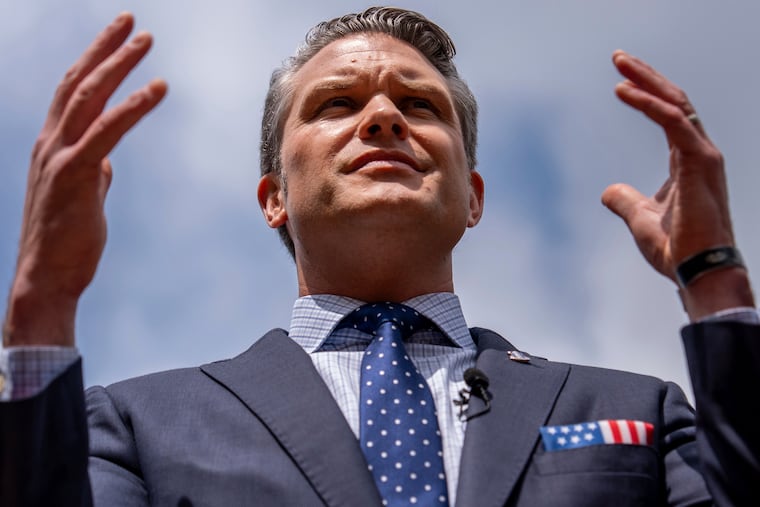There is a cruel and familiar rhythm to the U.S. military’s history of inclusion. For decades, it has operated on a cycle of exclusion, followed by slow, often reluctant, acceptance, only to have a new policy emerge that targets a new group.
The arguments are always the same: unit cohesion, readiness, and cost. As a lesbian Marine veteran who has witnessed these battles firsthand, I see the Air Force’s new policy on transgender service members not as an isolated misstep, but as the latest, most calculated beat in this discriminatory drum.
This pattern is not new. It began with the systemic exclusion and segregation of Black service members, who were often relegated to support roles and denied the same benefits as their white peers. It continued with the long and arduous fight to allow women to serve in combat roles.
And in my own lifetime, I experienced the suffocating effects of “Don’t Ask, Don’t Tell,” a policy that claimed to allow gay, lesbian, and bisexual people to serve, but only by forcing them into the shadows. The military’s rationale for DADT was the same as its arguments today: that the open presence of a specific group would damage morale and operational effectiveness. These claims proved to be baseless then, and they are baseless now.
The current policy, which denies early retirement options to transgender service members with 15-18 years of service, is a particularly vicious iteration of this historical pattern.
Instead of a blanket ban, it is a surgical strike designed to undermine the careers of a specific, vulnerable group. By revoking previously approved retirements and offering a lump-sum payment instead of a pension, the Air Force is attempting to quietly purge dedicated people at the very moment they are poised to achieve the stability they earned.
It’s a move that echoes the way past administrations used administrative discharges and convoluted regulations to push out those they deemed unfit for service.
The policy’s reliance on the idea that “gender dysphoria is incompatible with service” is another familiar smoke screen. As the military has demonstrated for centuries, waivers and accommodations are routinely granted for a wide range of medical conditions, from poor vision to chronic pain. To single out gender dysphoria as an insurmountable barrier to service is to ignore the lessons of history. It is a cynical maneuver to justify discrimination under the guise of medical necessity.
The true cost of this policy is not financial; it is the erosion of trust between a service member and the institution they serve. A military that breaks its promise to its most loyal members is a military that cannot hope to succeed in the 21st century.
We must break this cyclical pattern of exclusion. A military that truly values its members stands by them, not just when it is politically convenient, but through every challenge.
The fight for an inclusive military is a fight for a stronger military — one where dedication and sacrifice are the only metrics that matter, and where the promise of a secure future is a covenant that applies to every single person who wears the uniform.
Joa Rojas served as a staff sergeant in the U.S. Marine Corps. She is currently pursuing a master’s degree in public administration from New York University and is a resident of Gloucester Township.
